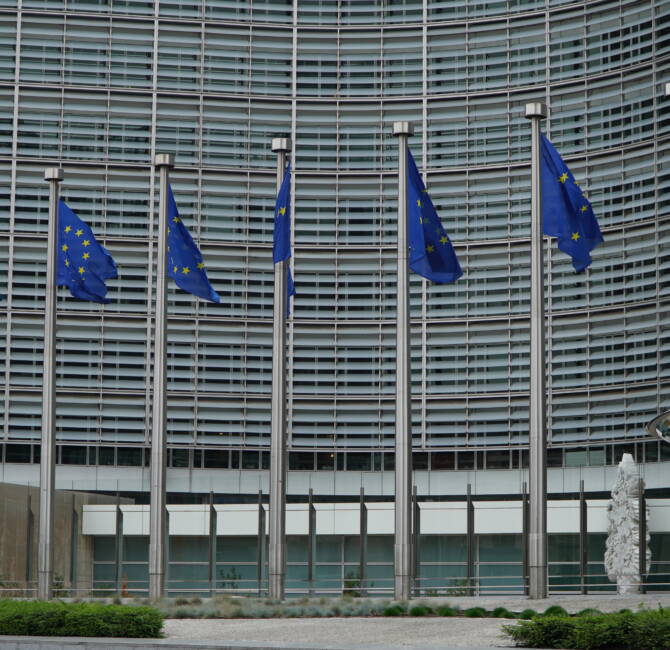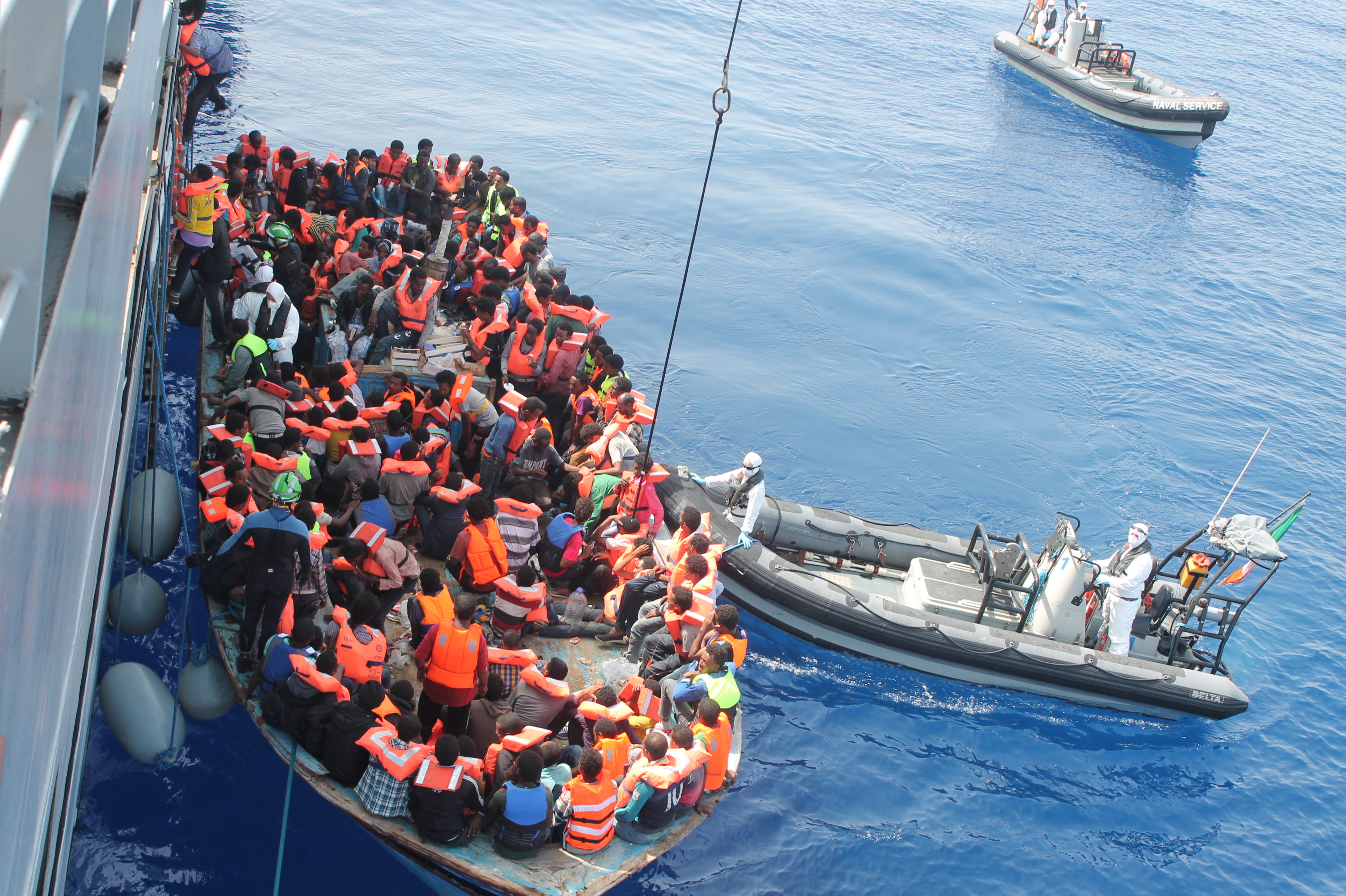By Olivier Bault.
Poland – Krasiczyn Castle in southeast Poland, near the city of Przemyśl, hosted some 350 young Hungarians and Poles from 26-30 August for the second edition of a new annual event: the Polish-Hungarian School of Leaders,organised in the form of a summer university. The event is obviously of some importance in the eyes of Hungary and Poland’s current leaders,as in addition to the main instigator of this event, Marek Kuchciński, until recently speaker of the Sejm (replaced at the beginning of August after he was criticised for having family members fly with him many times on a government plane), two deputy parliamentary speakers took part in the first day of discussions: Ryszard Terlecki of the Polish Sejm and János Latorcai of the Hungarian National Assembly.
The main organiser of the event is the Wacław Felczak Institute of Polish–Hungarian Cooperation, a Polish institution established by an act of parliament of 8 February 2018, a year after the creation of its Hungarian sister organisation, the Wacław Felczak Foundation. Felczak was a researcher on Polish-Hungarian relations, who during the Second World War organised a secret courier service leading through Budapest between the Polish Home Army (AK) and the Polish government-in-exile based in London.
Relations between the two countries have been close and almost always friendly for centuries, with a long tradition of mutual support in difficult times. But since Jarosław Kaczyński’s Law and Justice party (PiS) came to power in Poland in the autumn of 2015, and since Kaczyński and Hungarian Prime Minister Viktor Orbán declared that Europe needed a cultural counter-revolution during their meeting at the 2016 Krynica Economic Forum, attacks from Brussels against both Central European capitals have prompted them to reinforce their cooperation and bolster their region’s integration in order to counterbalance a Franco-German duet whose dominance in the EU is bound to become even more oppressive for smaller countries after Brexit.
If relations between the two Central European countries are already so good, why then organise such summer universities? Professor Maciej Szymanowski, director of the Felczak Institute, explains: “We have just conducted an opinion survey which shows that nearly 90% of Hungarians want their country to have good relations with Poland, and well over 50% want those relations to become even closer. On the other hand, in particular among the younger generation, we can observe that awareness ofthe realities of contemporary Poland is declining. And I am afraid it is much the same thing the other way around. The goal of our summer university is precisely to raise awareness about Polish-Hungarian relations, mutual knowledge about Poland and Hungary, and about the challenges both countries are facing now and are going to face in the 21st century.”
So who are the young people invited to participate at the Polish-Hungarian school of leaders? They are “people who, in spite of their young age, are already active in their surroundings, in universities, in clubs, in local government and in their communities, in editorial teams, and so on,” Szymanowski says. “Many of these people will probably soon have to shoulder some responsibility for their country, for Poland or Hungary.”
The special relationship between Hungary and Poland has been central to the revival of regional cooperation since Law and Justice (PiS) won the Polish elections in 2015. Poland’s ruling party and Hungary’s Fidesz have much in common. As was stated in Krasiczyn during a discussion panel with Kuchciński, Terlecki and Latorcai, because they have preserved a sense of their identity deeply rooted in Christianity, 30 years after the fall of communism the nations of Central Europe are the ones which can divert Western Europe from its current self-annihilating course.
Still, Terlecki said, there remains a very strong temptation to become “Europeans” in a different manner. Not as Poles and Hungarians, but as Europeans with no national identities, no borders, no Christian faith, no duties and obligations, only in search of a nice, pleasant life composed of uninterrupted fun. When we set out on this quest for pleasure, “the existence of nation-states, varying languages and cultural differences become a disturbance,” he said. “So each of you will have to choose between this type of‘easy-life Europe’ or keeping in mind that you have some duties towards your homeland,”Terlecki continued, warning his young audience that such a “Europe of pleasure” is an illusion in the face of the rapid growth of Islam in Western Europe. “It will only be possible to live in such a problem-free Europe of pleasure for a few years, maybe for a generation, but sooner or later it will come to confrontation.”
His Hungarian counterpart stressed that this was not the kind of world he would want to live in, pointing to the century-long struggle of both Poland and Hungary for their independence as an experience which the younger generation should build on to serve their countries and make a better Europe. For Latorcai, the fact that so many Western European heads of state and governments are childless or gay is symptomatic of the unfavourable development of society in their respective countries.
Unsurprisingly, most participants rather seemed to agree, as many of them came from Warsaw and Budapest’s Roman Catholic universities and pro-life movements, or had some links with the governing right-wing, conservative parties of Poland and Hungary.
Nonetheless, the Felczak Institute is a common Polish-Hungarian initiative meant to last longer than the current political configurations. Poland will be holding parliamentary elections on October 13. Opinion polls show a clear majority in favour of Law and Justice, but in Poland’s proportional system there is no guarantee that Kaczyński’s party will have an absolute majority for the second time in a row. Before the 2015 elections, no political party had ever obtained such a majority since the fall of communism in 1989-90. Before 2015, when Donald Tusk’s liberal Civic Platform was governing together with the agrarian Peasants Party (PSL), Poland was the only EU country where both the governing parties and the main opposition party, Law and Justice, opposed the calls for European sanctions against Hungary. Because of the liberals’recent shift to the left in Poland, things could be different this time if PiS loses its grip on power. However, if the European election results are to be taken as an indication of how Poles are going to vote in October, the liberals’ leftward shift could very well help PiS renew its absolute majority, as was the case for Fidesz in Hungary in 2014 and 2018.
So much for the short term. But the School of Leaders organised in Krasiczyn for the second consecutive year is all about the long term.




